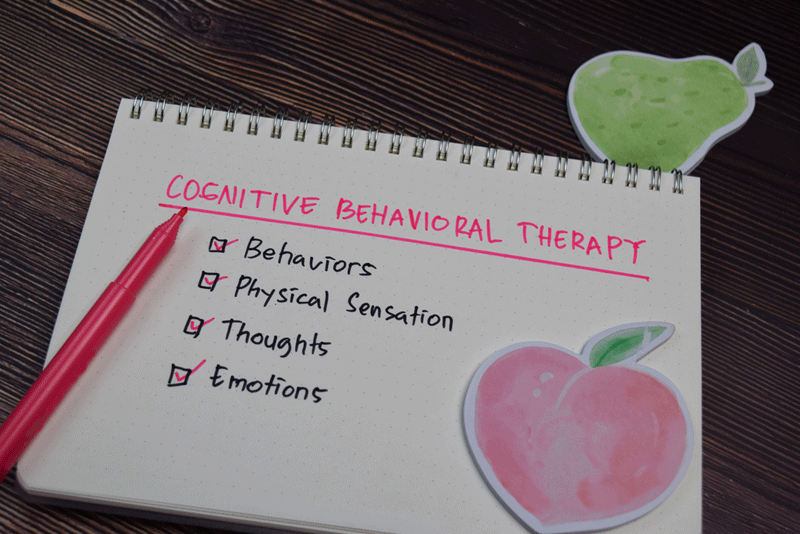In the realm of ADHD (Attention-Deficit/Hyperactivity Disorder), intrusive thoughts can often play a significant and perplexing role. These unwelcome, persistent thoughts can hijack the minds of individuals with ADHD, making it challenging to focus on daily tasks and maintain mental clarity. Whether it’s racing thoughts, worries, or vivid daydreams, understanding the connection between intrusive thoughts and ADHD is crucial for those navigating this neurodevelopmental condition.
In this article, I will delve deeper into the intricacies of intrusive thoughts in the context of ADHD, exploring their impact, potential causes, and effective strategies to manage and mitigate their disruptive influence on daily life.
What Are Intrusive Thoughts?
Intrusive thoughts are unwanted, involuntary, and often disturbing thoughts that pop into a person’s mind without warning. These thoughts can be graphic, distressing, or absurd, disrupting a person’s focus and peace of mind. While intrusive thoughts are a normal part of the human experience, they tend to occur more frequently in individuals with ADHD. Thousands of women and men with ADHD struggle alone, but it’s important to discuss and manage it.
Examples Of Intrusive Thoughts In Individuals With ADHD
When discussing examples of intrusive thoughts about ADHD, it is possible to gain a better understanding of the condition and learn how to cope with such thoughts when they occur.
Constant Mind Wandering
People with ADHD often experience difficulty in maintaining attention and focus due to the presence of intrusive thoughts that can make their minds wander uncontrollably. This can lead to significant challenges in completing tasks or engaging in conversations as they struggle to sustain their attention on a particular topic or activity.
These individuals may frequently switch between ideas, tasks, or conversations, making prioritising and following through on tasks difficult. Additionally, they may experience a sense of restlessness and impulsivity, which can further exacerbate their difficulties with sustained attention.
Impulsive Fantasies
Attention Deficit Hyperactivity Disorder (ADHD) is commonly characterised by impulsivity, which is the tendency to act on a whim without considering the consequences. Intrusive thoughts are another common symptom of ADHD, which may take the form of sudden, capricious fantasies or urges.
Individuals with ADHD may find themselves suddenly imagining acting on impulsive desires, which can be distressing and lead to impulsive behaviors. These impulsive behaviors can negatively affect the individual’s relationships, career, and overall quality of life. Therefore, individuals with ADHD need to develop strategies to manage their impulsive thoughts and behaviours.
Excessive Worry

Intrusive thoughts are unwanted and often distressing thoughts that can arise involuntarily. They can manifest as excessive worry or anxiety about future events or problems, causing significant emotional distress and interfering with daily life. Individuals with ADHD may experience these thoughts more frequently and find themselves obsessively thinking about negative outcomes, even when there’s no immediate cause for concern.
This can lead to difficulty in focusing on tasks and completing them, as well as increased stress and anxiety. Individuals with ADHD need to seek professional help if they experience intrusive thoughts that negatively impact their quality of life.
Repetitive Memories
Individuals with Attention Deficit Hyperactivity Disorder (ADHD) often encounter intrusive thoughts in the shape of repetitive and disturbing recollections from their personal history. These recollections can unexpectedly resurface, causing intense emotional responses and distress.
Self-Criticism

It is common for individuals with ADHD to experience intrusive thoughts that are self-critical. These negative and critical thoughts can constantly plague their minds, leading to a constant self-judgment that can harm their mental well-being. The pressure to be perfect and the fear of being unable to live up to expectations can lead to a constant feeling of inadequacy and self-doubt.
This can profoundly impact their self-esteem and self-confidence, making it difficult for them to feel good about themselves or their abilities. Individuals with ADHD need to recognize these thoughts and develop strategies to manage them effectively.
Causes Of Intrusive Thoughts In ADHD
Several factors contribute to the occurrence of intrusive thoughts in individuals with ADHD:
Distractibility
Individuals with ADHD often experience difficulties in sustaining attention, which makes it easier for intrusive thoughts to occupy their minds for longer durations. This is because they may find it challenging to divert their attention away from these thoughts due to their attentional deficits.
Impulsivity

It’s crucial to understand that individuals with ADHD may act on intrusive thoughts impulsively without considering the consequences. This behavior can worsen the impact of their actions, potentially leading to negative outcomes.
Neurochemical Imbalance
Attention Deficit Hyperactivity Disorder (ADHD) is a neurodevelopmental disorder that is linked to imbalances in neurotransmitters, specifically dopamine and norepinephrine. These imbalances can cause disruptions to the normal functioning of the brain, leading to a range of symptoms that include inattentiveness, hyperactivity, and impulsiveness.
Moreover, these imbalances can also affect thought patterns, leading to intrusive thoughts that can be difficult to control or manage. Individuals with ADHD may struggle with a range of cognitive and behavioral issues as a result of these imbalances. They may require specialized treatment and support to manage their symptoms effectively.
Coexisting Conditions
It is worth noting that a significant number of people with ADHD also experience co-occurring conditions such as anxiety and depression. These conditions are often linked to intrusive thoughts and may require specific treatment approaches to manage effectively.
Impact Of Intrusive Thoughts On Daily Life
Intrusive thoughts can significantly affect daily functioning for individuals with ADHD:
Increased Anxiety
It is worth noting that a significant number of people with ADHD also experience co-occurring conditions such as anxiety and depression. These conditions are often linked to intrusive thoughts and may require specific treatment approaches to manage effectively.
Impaired Concentration

Do intrusive thoughts make it difficult for you to complete tasks or engage in activities? These unwelcome distractions can disrupt your focus and hinder your productivity. Don’t let them hold you back any longer. Take control and overcome your intrusive thoughts today.
Impulsivity
It’s crucial to understand that acting impulsively on intrusive thoughts can lead to risky behavior or decisions that may have dire consequences. Taking a moment to pause and assess the situation can help prevent regretful actions that we may regret.
Social Isolation
People with ADHD may feel compelled to avoid social situations due to the fear of being judged or embarrassed because of their intrusive thoughts.
Coping Strategies For Intrusive Thoughts
Managing intrusive thoughts in ADHD requires a multi-faceted approach. Here are some strategies that can help you get a good night’s sleep and wake up refreshed:
Medication
Individuals dealing with intrusive thoughts may find relief through the use of medication prescribed for treating ADHD. This is because these medications can target similar symptoms and provide a reduction in the frequency and intensity of intrusive thoughts.
Cognitive – Behavioral Therapy (CBT)

Individuals diagnosed with Attention Deficit Hyperactivity Disorder (ADHD) may benefit from Cognitive Behavioral Therapy (CBT) techniques that can assist them in recognizing and questioning negative thoughts.
By replacing these thoughts with more constructive thinking patterns, CBT can help individuals with ADHD improve their overall well-being and manage their condition more effectively.
Mindfulness
By implementing mindfulness practices, individuals with ADHD can significantly enhance their ability to regulate their thoughts and concentrate on tasks. Mindfulness encourages a heightened awareness of our inner experience, leading to greater cognitive control and improved attention span.
Exercise and Healthy Lifestyle

Engaging in regular physical activity and consuming a well-balanced diet rich in essential nutrients can significantly enhance mental well-being and minimize anxiety. This can help reduce the occurrence of unwanted intrusive thoughts that may interfere with one’s daily life.
Support Groups
ADHD individuals benefit from support groups and therapy. They can discuss experiences, learn coping mechanisms, and gain insights from others. These groups provide a safe space and a sense of community that can make a positive difference in their lives.
Frequently Asked Questions
Are intrusive thoughts a common symptom of ADHD?
Yes, intrusive thoughts can be a common symptom of ADHD, especially when combined with coexisting conditions like anxiety.
Can medication prescribed for ADHD help with intrusive thoughts?
Some medications used to treat ADHD may also help alleviate symptoms of intrusive thoughts, but it varies from person to person.
Can children with ADHD experience intrusive thoughts?
Yes, children with ADHD can experience intrusive thoughts. Providing them with appropriate support and coping strategies is essential to manage these thoughts effectively.
What role does therapy play in managing intrusive thoughts in ADHD?
Therapy, especially Cognitive-Behavioral Therapy (CBT), can be highly effective in teaching individuals with ADHD strategies to identify, challenge, and manage intrusive thoughts.
Conclusion
Intrusive thoughts in ADHD can be challenging, but they are manageable with the right strategies and support. Understanding the causes and impact of these thoughts is the first step towards finding effective coping mechanisms and improving overall well-being for individuals with ADHD. If you or someone you know is struggling with intrusive thoughts in the context of ADHD, seeking professional guidance is crucial for tailored support and treatment.
